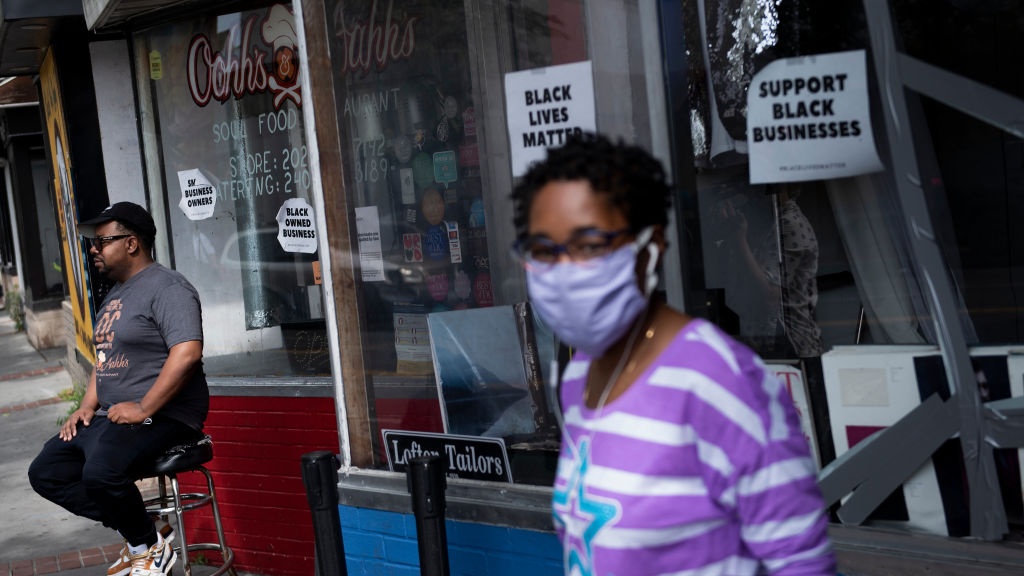The number of Black-owned businesses that have closed down permanently during the pandemic is substantially greater than the number of white firms and companies which have been forced to close.
According to a report from the Federal Reserve Bank of New York, cited by Forbes, 41% of Black-owned businesses in the country have shuttered due to the pandemic, compared to 17% of white-owned businesses. Additionally, Latinx business owners saw a 32% decrease in businesses, while 26% of Asian-owned businesses have been forced to close permanently.
Focusing on Black businesses that were impacted between February and April, the report found several factors leading to the racial disparity among the closures. Claire Kramer Mills, assistant vice president at the New York Fed, said the challenges for Black businesses include unreliable financial cushions, weaker bank relationships and preexisting funding gaps.
"COVID-19 has exacerbated these issues and businesses in the hardest hit communities have witnessed huge disparities in access to federal relief funds and a higher rate of business closures," Mills said in a statement.
The New York Fed says many Black-owned businesses are also located in regions that are being heavily impacted by the coronavirus.
"Volumes of COVID-19 cases coincide with Black-owned business locations: two-thirds of counties with high levels of Black business activity pre-COVID-19 are in the top 50 COVID-affected areas," the report concludes.
There's also evidence of Black business owners being left out of the government's Paycheck Protection Program.
"These loans reached only 20% of eligible firms in states with the highest densities of Black-owned firms, and in counties with the densest Black-owned business activity, coverage rates were typically lower than 20%," the New York Fed stated.
Mills said a more targeted geographic focus is needed in order to make sure Black businesses in certain regions aren't forgotten.
"The racial disparities in bank relationships prior to COVID-19 detailed here raise structural questions about the presence and functioning of banks in communities of color, questions that have heightened significance when banks are relied on to administer federal, taxpayer-supported relief programs, as is the case with PPP,” Mills stated.
Additionally, many Black business owners were still struggling to recover from the Great Recession.
"Even the healthiest Black firms were financially disadvantaged at the onset of COVID-19," the report stated.
Some Black-owned businesses in states that reopened earlier were able to make progress, but their hopes have become dimmer again as the number of COVID-19 cases continues to climb, the report concludes.
A May study from the Stanford Institute for Economic Policy Research highlighted the pandemic's devastating impact on Black businesses, as Blavity previously reported. Robert Fairlie, an economics professor at the University of California, Santa Cruz, led the study, concluding that 440,000 Black businesses were lost between February and April.
"The findings are alarming. The number of African-American business owners plummeted from 1.1 million in February 2020 to 640,000 in April," Fairlie stated. "The loss of 440,000 Black business owners representing 41 percent of the previous level is disconcerting."
